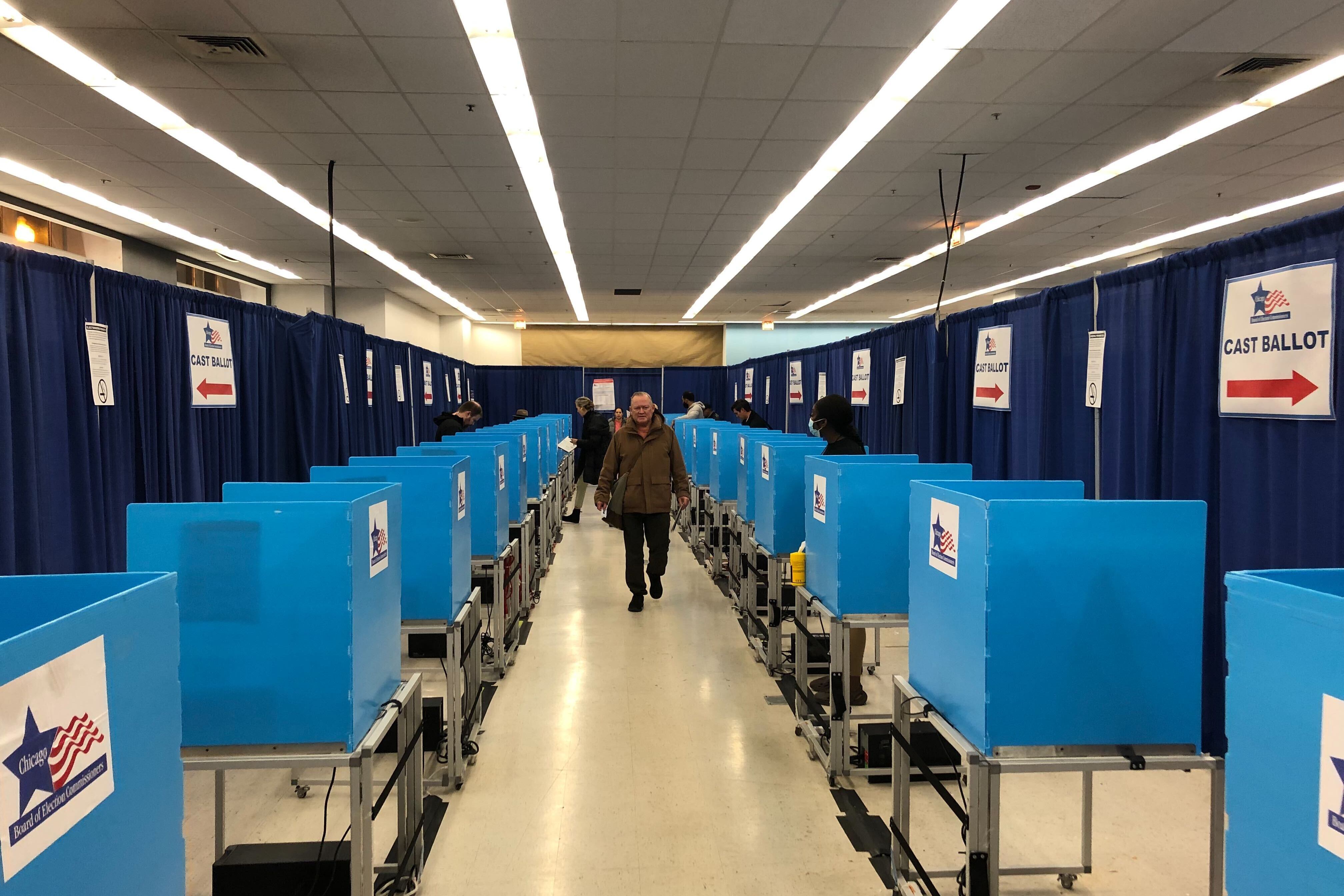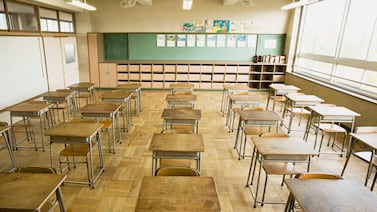Sign up for Chalkbeat Chicago’s free daily newsletter to keep up with the latest education news.
Leer en español.
Campaign money, voting districts, and school board member compensation are some of the issues Chicagoans have questions about as the city’s first school board elections loom.
Starting Jan. 15, 2025, Chicago’s Board of Education will go from seven members appointed by the mayor to a 21-member board with 10 elected members and 11 appointed by Mayor Brandon Johnson. Campaign season is officially underway and candidates are surfacing.
Tuesday was the first day people could collect signatures to get on the ballot for the Nov. 5 election. As of Wednesday, six candidates have filed campaign finance paperwork with the Illinois State Board of Elections.
Last month, Chalkbeat asked readers what questions they had about Chicago’s shift to an elected school board. We got dozens of responses. We’ll be answering them over the coming months, starting with these six focused on the electoral process.
How were Chicago Board of Education members chosen in the past?
Chicago’s school board is currently made up of seven members appointed by the mayor, who has unilateral power to pick anyone to serve. In the past, those appointments have been secret until the mayor announced them, often in a press conference or press release. Both former Mayor Lori Lightfoot and former Mayor Rahm Emanuel replaced the entire school board after being elected.
The state gave Chicago’s mayor the power to appoint school board members in 1995, when then-Mayor Richard M. Daley was in office. Prior to that, the mayor would select school board members through a community nominating process.
During November’s elections, will all districts be up for election? How long will board members serve?
Yes. Illinois lawmakers divided Chicago into 10 districts for the 2024 election. On Nov. 5, residents of each district will elect a school board member to represent them for two years. On or before Dec. 16, 2024, Mayor Brandon Johnson will appoint 10 school board members — one from each district — and a board president to serve two-year terms.
Here’s how it will work.
Each district is also subdivided into two regions. For example, District 1 is made up of two parts: 1A and a 1B. If the winning candidate in District 1 lives in 1A, the mayor has to appoint someone who lives in 1B. If the winner in District 2 lives in 2B, the mayor must appoint someone who lives in 2A, and so on.
In 2026, Chicagoans will vote for candidates in all 20 subdistricts to serve either a two-year or four-year term. The school board president will be elected that same year citywide to a four-year term, which will start on Jan. 15, 2027.
What qualifications does someone need to be a Chicago school board member?
State law says that to serve on the CPS school board, you must be:
- a U.S. citizen.
- a registered voter.
- at least 18 years old.
- a resident of the city, district, or subdistrict for at least one year immediately before election or appointment.
In addition, board members must not be registered sex offenders or contractors or vendors working with the district. Candidates must also get at least 1,000 signatures on an election petition, among other rules.
Will there be any oversight into school board members’ campaign finances? How can citizens check who is donating to campaigns?
The Chicago Board of Education requires its members to file a statement of economic interests and recommends that board members keep a list of campaign donors. Citizens can check who is financing a candidate’s campaign by searching the Illinois State Board of Elections website or Reform for Illinois’ Sunshine Database.
Will school board members be compensated?
The short answer is no. Currently, school board members in Chicago and the rest of Illinois can be reimbursed for expenses related to their duties.
However, last fall, state lawmakers proposed a bill to lift a ban on compensation for school board members from being compensated. This bill would not mandate the school district to provide a salary or set minimums for how much school board members would be paid. It would simply allow local boards to decide. This bill has been stuck in the Senate’s Assignments committee since October.
Will Chicago’s elected school board be trained by the Illinois Association of School Boards?
Not necessarily. According to the state’s school code and a Chicago Board of Education rule, all school board members, appointed or elected, must be trained. However, school board members do not have to be trained by the Illinois Association of School Boards.
The state requires board members to be trained in education law, labor law, financial oversight and accountability, financial responsibility of school board members, and trauma-informed practices for students and staff. Chicago’s Board of Education says that members must be trained in the Opening Meetings Act, the Code of Ethics, and the Illinois Mandated Reporter law, among other topics.
Still have questions? Let us know in the form below.
Samantha Smylie is the state education reporter for Chalkbeat Chicago covering school districts across the state, legislation, special education and the state board of education. Contact Samantha at ssmylie@chalkbeat.org.
Becky Vevea is the bureau chief for Chalkbeat Chicago. Contact Becky at bvevea@chalkbeat.org.







